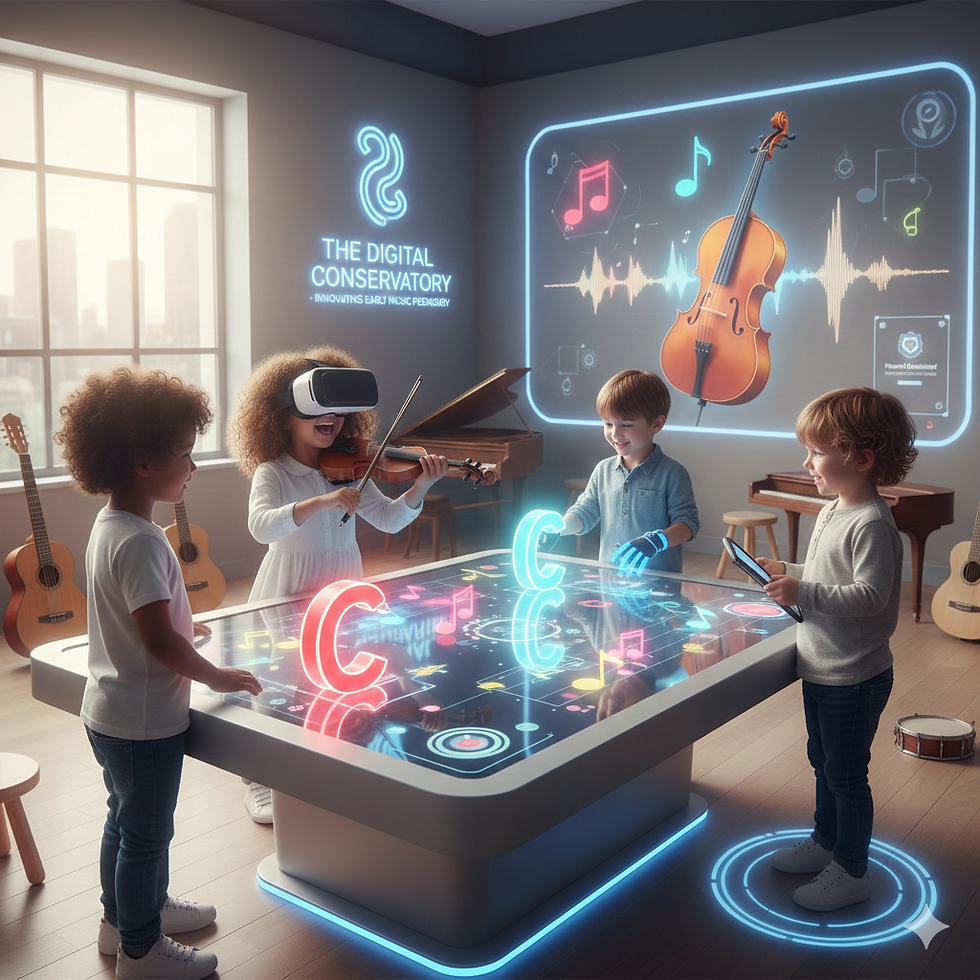"Finding Your Rhythm: Blending Formal and Informal Learning for a Lifetime of Music"
- Aug 12, 2025
- 3 min read
Updated: Aug 20, 2025
Hello Music Lovers!
Today we're diving into a topic that's super relevant for anyone on a musical journey, whether you're a complete beginner or a seasoned pro: the world of music education. We often think of music learning as happening in two distinct ways: formal and informal. But have you ever stopped to think about what these two approaches really mean, and how they shape our musical lives?
To get a fresh perspective, let's explore a fascinating study on what non-music teachers in secondary schools think about these learning styles. Their insights offer a unique viewpoint because they aren't directly involved in teaching music, but they see the impact of it every day.

What's the difference?
First, let's clarify what we mean by formal and informal learning.
Formal Music Learning 🎶: This is what most of us think of when we imagine music lessons. It's structured, often involves a teacher or tutor, and follows a set curriculum. Think music school, private lessons, graded exams, and theory classes. It's all about mastering technique, reading sheet music, and understanding music theory.
Informal Music Learning 🎸: This is learning that happens organically, often driven by personal interest and passion. It's self-directed and doesn't follow a strict plan. This could be learning songs by ear, watching tutorials on YouTube, jamming with friends, or experimenting with a new instrument on your own. It's learning by doing, exploring, and creating.
The Non-Music Teacher's Take
The study found that these teachers have some really interesting perspectives on both types of learning. Their observations, based on seeing students' overall development, highlight the strengths and weaknesses of each approach.
The Value of Formal Learning
Non-music teachers often see the benefits of formal learning in the development of discipline and perseverance. They notice that students who take formal lessons tend to be more organized, better at time management, and understand the value of practice. This structured environment provides a strong foundation. The teachers also appreciate the transferable skills that formal music education provides, like enhanced memory, improved concentration, and a deeper appreciation for cultural heritage.
The Power of Informal Learning
However, the teachers also strongly value informal learning. They see it as the engine of creativity and self-expression. Students who learn informally often show more enthusiasm and a stronger personal connection to the music they play. This kind of learning encourages improvisation and risk-taking, which are essential for creative growth. The teachers recognize that informal learning often makes music more accessible and less intimidating for many students, helping them to find joy in music without the pressure of exams or performance expectations.
Finding the Right Balance
The biggest takeaway from the teachers' perspectives is that there isn't one "right" way to learn music. Instead, the most effective approach seems to be a combination of both.
Formal learning provides the tools: It gives you the technical skills, the theoretical knowledge, and the discipline needed to build a solid musical foundation.
Informal learning provides the fuel: It gives you the motivation, the passion, and the creative freedom to truly make music your own.
Think of it like this: formal learning teaches you the grammar and vocabulary of a language, while informal learning is how you actually have conversations, write stories, and express your ideas.
Whether you're just starting your musical journey or looking to reignite your passion, remember to embrace both sides of the coin. Use structured lessons to build your skills, but also give yourself the freedom to play, experiment, and have fun. After all, music is a universal language, and there are countless ways to learn to speak it fluently.
Happy practicing!



Comments